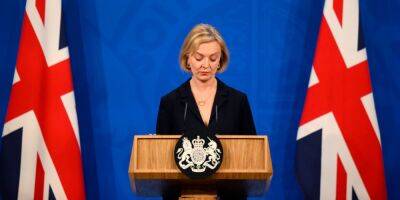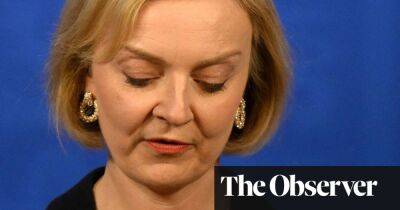One in five families in Liz Truss’s seat would lose out under real-term benefit cuts
At least one in five working-age families in most UK constituencies – including in Liz Truss’s seat – would lose out by hundreds of pounds on average if real-terms benefit cuts go ahead, a study has found.
The scale of the impact of a below-inflation rise on already struggling households and by extension, local shops and businesses, is revealed in a study by the Joseph Rowntree Foundation (JRF). It would amount to the biggest-ever real terms cut to benefits in a single year.
The findings will increase pressure on the prime minister to stick to promises made by her predecessor, Boris Johnson, to guarantee benefits would rise next April in line with September inflation – about 10% – rather than by the rise in earnings figure of 6%. This real-terms cut would deliver around £5bn in savings to the Treasury.
Dozens of backbench Tory MPs are understood to be prepared to rebel over real-terms benefits cuts, while a number of cabinet ministers – including Penny Mordaunt and Robert Buckland – have also signalled their opposition.
The JRF analysis shows seven out of 10 MPs represent areas where at least 20% of households are reliant on universal credit and other means-tested benefits. These include 193 Conservative seats, including a number of key marginals where over a third of working-age families would be affected by a cut.
“Politicians should think long and hard about the impact of withholding hundreds of pounds from thousands of families in their constituencies when the basic rate of benefits is already at its lowest in real terms for 40 years and prices are sky-high,” said Katie Schmuecker, JRF’s principal policy adviser
Families in ”red wall” seats in one-time Labour strongholds taken by the Conservatives at the last general
Read more on theguardian.com

 theguardian.com
theguardian.com




















